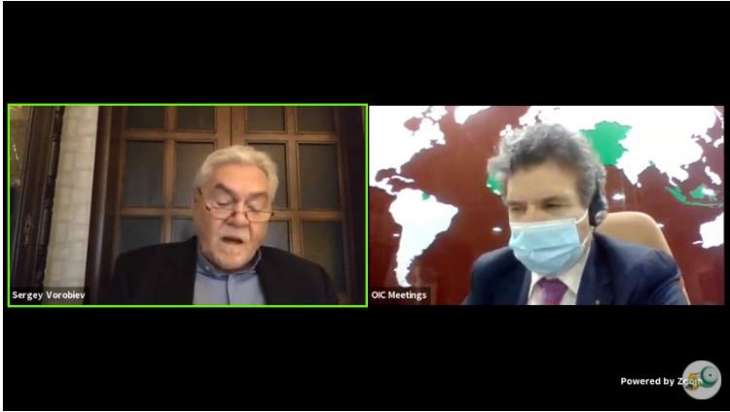The General Secretariat of the Organization of Islamic Cooperation (OIC) held a virtual lecture entitled Muslim-Christian Interaction and its Influence on the Russian Culture as part of its cultural and intellectual season. Russian academic Sergey Vorobiev delivered the lecture on Sunday, September 20, 2020
Jeddah (Pakistan Point News - 21st September, 2020) The General Secretariat of the Organization of Islamic Cooperation (OIC) held a virtual lecture entitled Muslim-Christian Interaction and its Influence on the Russian Culture as part of its cultural and intellectual season. Russian academic Sergey Vorobiev delivered the lecture on Sunday, September 20, 2020.
Dr. Vorobiev talked about the history of Islam in the Russian Federation, noting that Islam spread in Russia from two historical centers, the North Caucasus in Dagestan, which saw the arrival of Arab Muslims for the first time in 642 CE and then Derbent "Bab al-Abwab", the old city known in world history, appeared.
The Russian academic researcher indicated that Derbent was one of the outposts of the Umayyad Caliphate in its far north, pointing out that the spread of Islam continued to the eighteenth century during the era of Emperor Peter the Great (1682-1725).
Vorobiev indicated that the second center was in the basin of the Volga and Kama rivers, a thousand kilometers east of Moscow, where Islam entered in the tenth century through intense demographic contact by the inhabitants of Central Asia with the inhabitants of the basin.
Vorobiev added that the Russians were acquainted with the Noble Qur’an after its translation from French into English and then into Russian in 1716, pointing out that the Russian relations with Muslims went through some disturbances, such as those in the Volga-Kama basin. This drew attention of the Russian Tsarist to the Muslim- populated regions.
It is worth noting that Sergey Vorobiev is a Russian orientalist and historian and the head of the Foundation for the Support of OIC activities in the Russian Federation.




